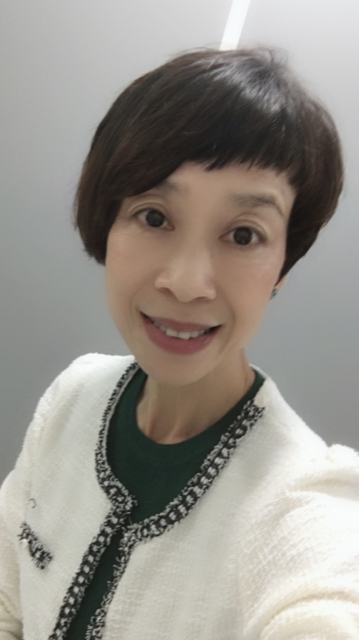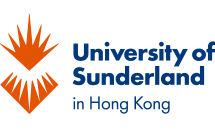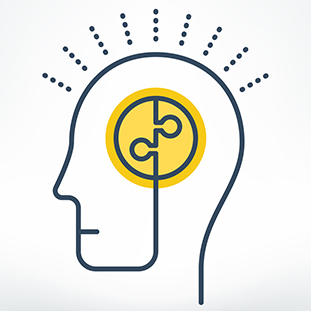Thinking Critically and Logically 批判及邏輯性思考
Thinking Critically and Logically
批判及邏輯性思考
Thinking critically and logically as a student will generate benefits in many areas of life. In general, students who develop logic and critical thinking skills are more able to achieve better results, become less dependent on lectures, and become more evaluative and creative individuals. Thus, it is essential to have a better understanding of basic logic and the process of critical thinking. 以學生的角度進行批判及邏輯性思考,可在生活不同領域中獲益。一般而言,能掌握批判及邏輯性思考的學生,往往更能獲得優秀的成績,他們相對上不會太依賴課堂教學,並能加以自我評估及更具創造力。因此,擁有基本邏輯和批判性思考是十分重要的。
A definition of critical thinking is the disposition to think clearly and accurately in order to be fair (Paul, R., & Elder, L., 2012). Critical thinking is the ability to think clearly and rationally about what is right, what is wrong, what to do, or what to believe. It includes the ability to engage in reflective and independent thinking. Someone with critical thinking skills is capable of understanding the logical connections between ideas. 批判性思考的定義是清晰、準確地思考部署,以達至公平(Paul,R.,&Elder,L.,2012)。批判性思考是清晰理性地分析對與錯, 該做甚麼,或該相信甚麼的能力,同時包含反思和獨立思考的能力。具有批判性思考能力的人能理解不同概念之間的邏輯關聯。
Logic refers to the analysis of the meaning of the concepts common to all the sciences, and establishes the general principles governing the concepts. (A. Tarski, 1901-1983). To
discover truths is the task of all sciences, not of assertion or thought (G. Frege (1848-1925). Logic is a scientific process to evaluate reasoning and arguments. Critical thinking is the practice of evaluation which uses logic to separate truth from falsehood, and reasonable from unreasonable beliefs. 邏輯是指對所有科學共同概念的含義進行分析,並建立管理這些概念的通用原則(A. Tarski, 1901-1983)。發現真理是所有科學的任務,而非主張或思想(G. Frege, 1848-1925)。邏輯是推理和論證的科學過程。批判性思考則是運用邏輯推理,以分辨真理與虛假、合理與不合理。
Therefore, it is important to evaluate claims, ideas, and arguments by using critical thinking in life. 因此, 在生活中使用批判性思考來評估主張、概念和論點都十分重要。
The fundamental skill of effective thinking is to ask questions before reaching conclusions, i.e.: 有效思維的基本技能是在得出結論之前先提出問題,即:
- If this is true, what else must be true?
如果這是真的,還有甚麼一定是真實的? - If this is true, what else is probably true?
如果這是真的,還有甚麼可能是真實的? - If this is not true, what else can’t be true?
如果這不是真的,還有甚麼一定不是真實的?
These are all inferences that are connections between a given statement (the premise)
and other statements (the conclusion). Inferences are the basic building blocks of logical reasoning, and there are strict rules governing what counts as a valid inference and what doesn’t – it is just like mathematics but applies to statements rather than numbers. 這些都是推論, 是陳述( 前提) 和其他陳述( 結論) 之間的聯繫。推理是邏輯推理的基本組成部分, 並且以嚴格的規則控制甚麼才算是有效的推理,甚麼才是有效的推理–如同數學,但僅適用於陳述而非數字。

Which of the following statements are valid, and which are invalid? 以下哪些語句有效,哪些無效?
Affirming the Premise 確認前提
If A is true, then B is true. 如果 A 是真的,則 B 也是真的。
A is true; therefore, B is true. 因為 A 是真的;所以 B 也是真的。
Example: 例子:
If it is a Lucky, then it is a dog. 如果是 Lucky,那麼就是一隻狗。
It is Lucky. Therefore, it is a dog. 因為是 Lucky,所以就是一隻狗。
Affirming the Consequent 確認結果
If A is true, then B is true. 如果 A 是真,則 B 也是真。
B is true; therefore, A is true. 因為 B 是真的;所以 A 也是真的。
Example: 例子:
If it is Lucky, then it is a dog. 如果是 Lucky,那麼就是一隻狗。
It is a dog. Therefore, it must be Lucky. 因為是一隻狗,所以就是 Lucky。
Denying the Premise 否認前提
If A is true, then B is true. 如果 A 是真,則 B 也是真。
A is NOT true; therefore, B is NOT true. 如果 A 不是真的,則 B 也不是真的。
Example: 例子:
If it is a Lucky, then it is a dog. 如果是 Lucky,那麼就是一隻狗。
It is not a Lucky. Therefore, it is not a dog. 因為不是 Lucky,所以就不是一隻狗。
Denying the Consequent 否認結果
If A is true, then B is true. 如果 A 是真,則 B 也是真。
B is NOT true; therefore, A is NOT true. 如果 B 不是真的,則 A 也不是真的。
Example: 例子:
If it is a Lucky, then it is a dog. 如果是 Lucky,那麼就是一隻狗。
It is not a dog. Therefore, it cannot be a Lucky. 因為不是一隻狗,所以就不是 Lucky。
Use your critical thinking and logic to think about: Which one is true? Any reasons? 嘗試用批判性思考和邏輯思考: 哪一個是正確的? 其原因是甚麼?
If you want to figure it out, try to use your critical thinking to think clearly and rationally about what is right and, what is wrong. Use logic to separate truth from falsehood, and reasonable from unreasonable beliefs. Then, you should figure out the above – Good Luck. 如果你想獲得更加深入地了解, 請嘗試運用批判性思考,清晰、理性地思考甚麼是正確的,甚麼是錯誤的。用邏輯區分真理與虛假,以及合理與不合理。之後,你應該會對以上內容有更深入的了解 ─ 祝你好運!
The answer is at the bottom…答案在頁底…
 Author – Dr. Margaret CHUI Siu Miu
Author – Dr. Margaret CHUI Siu Miu
holds a Doctoral degree in Business Administration focusing on Ethical Marketing, three Master’s degrees majoring in Event & Festival Management, Training and Human Resources Management, and Marketing, and a Postgraduate Diploma in Education with University of Hong Kong. Prior to becoming an educator, she processed substantial work experience in the education industry, retail industry, and the property industry.
作者 – 崔少妙博士
持有工商管理博士學位, 專注於道德行銷研究; 並獲頒活動與項目管理、培訓與人力資源管理、市場營銷等三個碩士學位,以及香港大學的教育學研究生文憑。在成為教育家之前,她於教育、零售和物業等均積累了豐富的行業經驗。
References
- Tarski, A., (1901-1983), Introduction to logic and to the methodology of deductive sciences, Dover, pp 11.
- Frege, G., (1848-1925), “The Thought: A logical inquiry” in mind, Vol. 65
- Paul, R., & Elder, L., (2012), Critical thinking: tools for taking charge of your learning and your life, Boston, Pearson.
Answer Key: 答案:
Affirming the Premise (Valid); Affirming the Consequent (Invalid);
確認前提(有效);確認結果(無效)
Denying the Premise (Invalid); Denying the Consequent (Valid)
否認前提(無效);否認結果(有效)

 Thinking critically and logically as a student will generate benefits in many areas of life. In general, students who develop logic and critical thinking skills are more able to achieve better results, become less dependent on lectures, and become more evaluative and creative individuals. Thus, it is essential to have a better understanding of basic logic and the process of critical thinking. 以學生的角度進行批判及邏輯性思考,可在生活不同領域中獲益。一般而言,能掌握批判及邏輯性思考的學生,往往更能獲得優秀的成績,他們相對上不會太依賴課堂教學,並能加以自我評估及更具創造力。因此,擁有基本邏輯和批判性思考是十分重要的。
Thinking critically and logically as a student will generate benefits in many areas of life. In general, students who develop logic and critical thinking skills are more able to achieve better results, become less dependent on lectures, and become more evaluative and creative individuals. Thus, it is essential to have a better understanding of basic logic and the process of critical thinking. 以學生的角度進行批判及邏輯性思考,可在生活不同領域中獲益。一般而言,能掌握批判及邏輯性思考的學生,往往更能獲得優秀的成績,他們相對上不會太依賴課堂教學,並能加以自我評估及更具創造力。因此,擁有基本邏輯和批判性思考是十分重要的。


